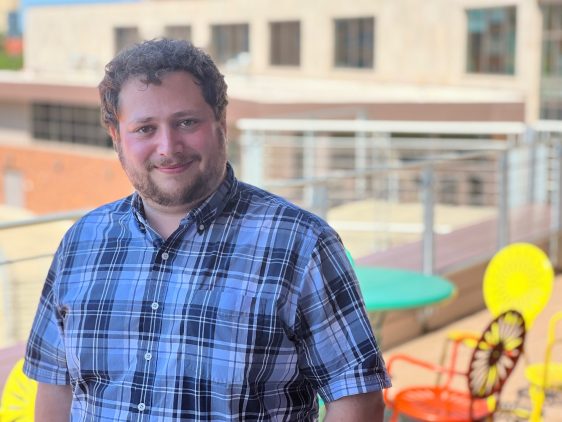Assistant Professor
College of Engineering | Department of Industrial and Systems Engineering
Yonatan Mintz is an assistant professor in the Industrial and Systems Engineering department at the University of Wisconsin, Madison. His research focuses on the application of machine learning and automated decision making to human sensitive contexts. One application of his research has been on using patient level data, to create precision interventions . Yonatan is also interested in the sociotechnical implications of machine learning algorithms and has done work on fairness, accountability, and transparency in automated decision making. In terms of methodology his research explores topics in machine learning theory, stochastic control, reinforcement learning, and nonconvex optimization. Yonatan’s work has been recognized as a finalist in the INFORMS Health Applications Society Pierskalla Paper competition, a best poster award from the NeurIPS joint workshop on AI for Social Good, and he has been actively invited to publicly speak about his work in both print and televised media including PBS. His research has been funded by American Family Insurance. Prior to joining UW–Madison, Yonatan was a postdoctoral research fellow at the department of Industrial and Systems Engineering at the Georgia Institute of Technology. Yonatan received his B.S. in Industrial and Systems Engineering with a concentration in Operations Research from Georgia Tech in 2012, and his Ph.D. in Industrial Engineering and Operations Research from the University of California, Berkeley in 2018.
Areas of expertise, continued: AI for Social Good
Dr. Mintz’s talks can also be offered in Hebrew.
Talks:
Hard Choices in AI Safety in the Age of Generative AI
In our increasingly AI-driven world, with systems like ChatGPT and Autonomous Vehicles, ensuring the safe and ethical use of AI systems is crucial. However, understanding and pinpointing potential risks AI systems pose in complex social settings isn’t straightforward. In this talk I unpack the uncertainties around AI safety and ethics, emphasizing that resolving these issues goes beyond math and algorithms. This presentation will explore how to identify where design intersects with societal concerns and encourages open dialogue to comprehensively address safety issues, emphasizing the need for thoughtful deliberation in AI development within democratic societies.
AI Enabled Behavioral Analytics for Precision Medicine
The recent increase in the use of ubiquitous technologies such as smart phones, wearable devices, and smart sensors has allowed for the collection of a large amount of patient level data. These new sources of data are promising for the development of new AI powered methods for smart and connected patient care. However, these highly personalized data settings provide not just technological challenges but also socio-technical challenges in terms of equity, transparency, and privacy that come with automated decision making. In this talk, I discuss some of my lab’s recent advances in developing AI powered personalized treatments and interventions. I will discuss how we can use individual level data to help with weight loss and exercise treatment, and insure interpretability and efficacy of our models.
Using AI to Optimize Community Health Interventions in the Developing World
Diabetes is a global health priority, especially in lower-middle-income countries, where over 50% of premature deaths are attributed to high blood glucose. Several studies have demonstrated the feasibility of using Community Health Worker (CHW) programs to provide affordable and culturally tailored solutions for early detection and management of diabetes. To support the integration of CHWs into health systems and communities, the World Health Organization has stressed the need for evidence-based models for deployment and management of these programs. In this talk I introduce a novel AI framework developed by my lab to address this need. This AI framework builds personalized CHW visit plans to maximize glycemic control at a community-level. In this talk I highlight how this framework can be implemented, and how it can be used to address health equity concerns in providing treatment.
